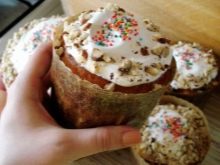Holy Saturday before Easter
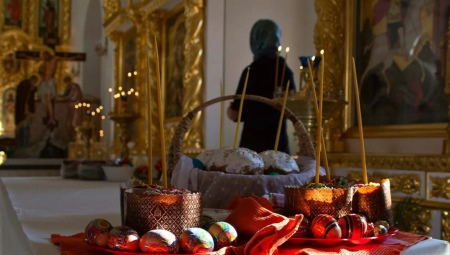
A special period every year for believers is Great Lent and the celebration of Easter. But even more important and special, albeit difficult for some, is the last day of Holy Week (Holy Week) - Holy Saturday. It is not customary to have fun on this day, but you need to do a number of other things, as well as observe traditions. The article will talk about what this day symbolizes, as well as about its traditions: what you can and even need to occupy yourself with on Holy Saturday.
Peculiarities
Holy Saturday before Easter got its name from the fact that it is the last day of Holy Week. It is believed that this Saturday is also Holy because it is the last day of Great Lent. This day is also called by the Orthodox the Great, Quiet, Clean or Dyeing (Red) Saturday.
History tells us that Holy Week (until Friday) symbolizes the last days of the life of Christ. It is believed that on Friday there was a crucifixion, and over the next day the body of the saint lay in the tomb. As you know, Easter is the Resurrection of Christ, and Saturday, respectively, is the day before the Resurrection. The crucifixion became a great grief for the disciples and followers of Christ, and no one at that moment could even think that he would be resurrected. Thus, this day (like the following night) symbolizes the sorrow for the deceased saint.
This day is called Quiet, because usually during this period, believers try to stay away from the noise of the world. It is generally believed to be a day of abstinence. Dyeing room means that eggs need to be dyed on this day.
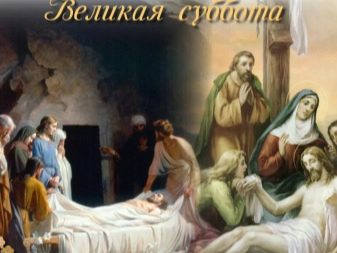

What can and cannot be done?
As mentioned above, this day is not for a fun pastime.Thus, it is forbidden to arrange any entertainment events, it is also not allowed to walk, sing, dance, go to parties, or celebrate anything. It is forbidden to arrange weddings, celebrate birthdays and participate (organize) other similar events. It is necessary to give up carnal pleasures. You should not laugh loudly or rejoice, as well as make noise on the eve of Resurrection. Against the background of reflections on the suffering of Christ, this would not be entirely appropriate.
You cannot swear on this day and on the eve of this day. Foul language is also discouraged. Do not be annoyed or somehow demonstrate your irritation. In general, you need to try to restrain negative emotions.
Traditions tell us that on this day it is necessary to devote oneself with thoughts to the spiritual preparation for the upcoming Resurrection. And therefore it is undesirable to think about other things (and even more so about cleaning).
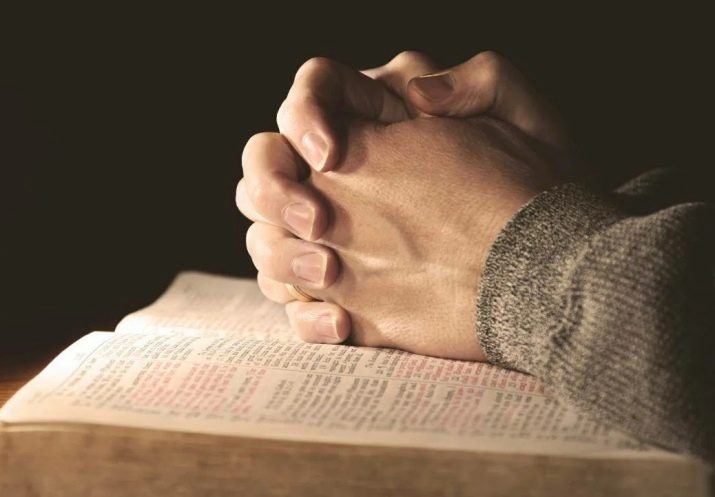
Work
You cannot do work on this day. You need to try to finish everything in advance. It is especially not recommended to engage in construction.
Wash
In past centuries, it was believed that you should not wash on Holy Saturday. And it was also believed that it is undesirable to change your hairstyle or carry out any drastic changes in appearance. However, now this rule has become less strict due to the fact that previously it was possible to wash only in a bath (and it was a complex ritual), and nowadays taking a shower is a standard daily procedure.
In addition, it is better to go to services in clean clothes, having washed in advance.
Get out
Cleaning is allowed, but too heavy housework is not advisable. It is best to finish cleaning by Friday, and be especially active Monday through Wednesday. On this day, you can only finish those things that you did not manage to finish in the first half of the week.
It is also not recommended to wash your laundry. However, there is no strict prohibition on doing housework. If you need urgent washing or other matters, it is quite possible to carry them out.

Go to the cemetery
Be sure to visit the graves of close relatives. You can also order a memorial service for them. Despite this, it is not worth remembering the dead on this day. However, now most people prefer not to visit the cemetery, since after that there is no time to prepare for the holiday or attend a divine service.
If the commemoration or anniversary fell on this day, then it is better to postpone them to another date.
Work in the country
It is not recommended to work in the garden on this day - to plant plants, weed the beds and even water.
Taking out the trash
Taking out the trash is not recommended. It is also not good to take any things out of the house. This is believed to attract loss and setback.
The main occupation of believers should be attending services. They usually start early in the morning and continue throughout the day. Then they go to the All-Night Service. Only after its end is Holy Saturday considered complete.
Partly a lax ban on doing household chores, as well as celebrating events, suggests that believers will meet the Resurrection (and, accordingly, the celebration) cheerful and full of strength.
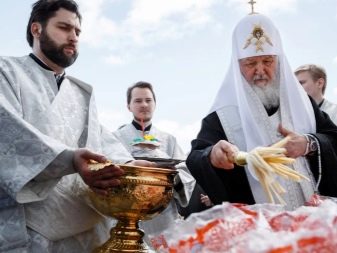
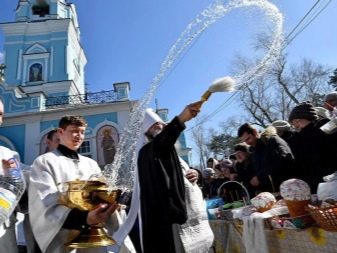
What can you eat?
Despite the fact that Easter cakes are being actively prepared for subsequent illumination in the church, it is better to adhere to the fast. The diet should include three categories of foods - lean bread, vegetables and fruits, and water. This day is considered the strictest in terms of fasting. You can get off it only after the end of the Vigil. Holy Saturday is officially considered completed after the words “Christ is risen! Truly resurrected! ”, Pronounced by the believers after the service. Easter cakes, eggs and cottage cheese, consecrated in the church, are brought home. You can eat them only after the end of the service.
In some cases (with strict observance of the fast) it is allowed to drink a little red wine in order to be able to withstand a long service.All other alcohol is strictly prohibited.
After strict observance of the fast, the meal, which includes colored eggs, Easter cakes, Easter cottage cheese and many other dishes, will become a grandiose holiday.
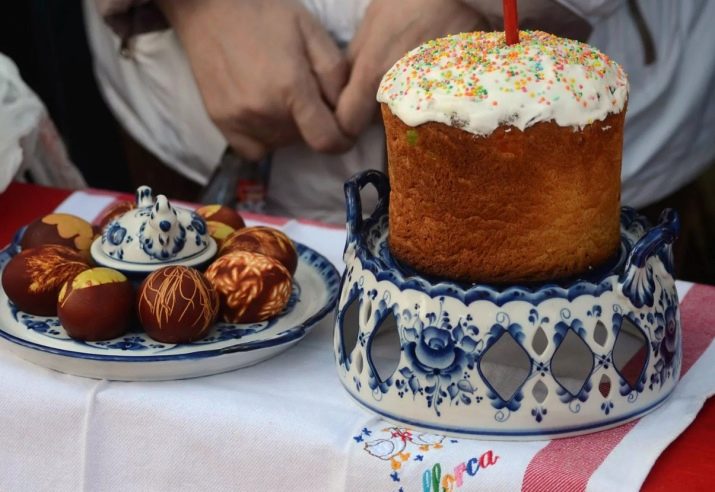
Folk omens
Customs and rituals on this day are closely intertwined with signs. Here is some of them.
-
It is believed that if, in spite of all the restrictions, you hold a holiday or a feast, then the whole next year will be distinguished by bad luck. If the birthday falls on this day, then it can still be celebrated, but very modestly.
-
Easter cakes that come out well symbolize a good and successful year.
-
Giving loans on Quiet Saturday is considered a bad sign and symbolizes the losses of the next year.
-
Waking up early is encouraged. Waking up at dawn means starting a new bright streak in your life.
-
Being late for a service is not considered a good sign. Although this action is not associated with any consequences.
-
A deceased relative who dreamed that night can become a good sign. It symbolizes the well-being of family members.
-
You don't need to go hunting or fishing. Shedding animal blood on this day is considered a bad omen.
-
It is advisable on a given day to visit relatives in need of help, or ask for forgiveness from those who might be offended by you. We must try to forgive the offenders ourselves.
-
The weather on this day was also determined by the weather of the next summer. If the weather was good (sunny), then it was considered that the summer would also be favorable. If the weather was rainy, then it was assumed that the summer would be cold and rainy.

